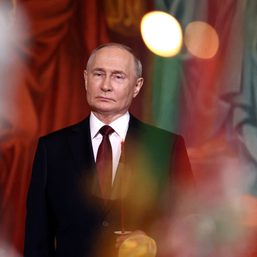SUMMARY
This is AI generated summarization, which may have errors. For context, always refer to the full article.

German Economy Minister Peter Altmaier warned on Thursday, December 3, that the country’s generous support for pandemic-hit firms could not go on “endlessly,” as calls grow louder for a return to more fiscal prudence.
After years of taking pride in a “black zero” balanced budget, Chancellor Angela Merkel’s traditionally frugal government threw out the rulebook in 2020 to help Europe’s top economy cope with the coronavirus shock.
Berlin pledged more than a trillion euros in aid to shield German workers and companies, including through subsidized reduced-time work schemes, and rolled out a 130-billion-euro stimulus plan to kick-start the recovery.
But as the pandemic drags on and the coronavirus bill creeps higher, critics are increasingly asking: who is going to pay for all of it?
Speaking to broadcaster NTV, Altmaier urged businesses to brace for changes from January and said it was wrong to think “the state can spend money without limits.”
The warning comes after Merkel late Wednesday, December 2, announced that Germany’s current shutdowns would last until January 10.
A second coronavirus wave forced Germany to introduce a renewed round of restrictions in November, shutting down bars, restaurants, and hotels, as well as cultural and leisure centers.
Businesses hit by the closures are entitled to claim aid amounting to up to 75% of their revenues for November and December 2019, expected to cost the government some 30 billion euros ($36 billion).
But Altmaier said the aid promised to help those firms through November and December “cannot continue endlessly.”
From January, the state support will once again be more targeted and largely focused on reimbursing firms for their fixed business costs such as office rent or insurance payments, he said, calling on Germans to “take a realistic view of the situation.”
‘Future generations’
The change in tone hasn’t come a moment too soon for those worried about the country’s growing debt burden.
“Aid on this scale is hardly sustainable for several months,” said Marcel Fratzscher, head of the influential DIW economic think tank.
Some national politicians have suggested that Germany’s 16 regional states should contribute more to the financial aid rather than relying on the federal government.
But local governments, many of whom are heavily indebted, have said they are already doing what they can.
“We also have to think about future generations. They will have to pay off the debt we are running up today,” Reiner Haseloff, premier of Saxony-Anhalt state, said recently.
In a move that would have been unthinkable before the pandemic, Merkel’s government agreed earlier this year to lift a constitutionally enshrined “debt brake” that in normal years limits new borrowing to 0.35% of gross domestic product.
With the second COVID-19 wave hammering the economy again after a brief recovery over the summer, Berlin now plans to borrow more than 300 billion euros in 2020 and 2021 to deal with the fallout.
The government has said it expects to return to its usual budgetary rigor in 2022.
Lawmaker Eckhardt Rehberg, the budgetary expert from Merkel’s conservative CDU party, on Thursday said the government “does not have bottomless pockets.”
The goal to restore the “debt brake” in 2022 is “ambitious enough,” he told Deutschlandfunk radio.
Spend more?
But not everyone is in a hurry to see Berlin tighten the purse strings.
“It’s better to do as much as possible now, to avoid greater damage later,” ING bank analyst Carsten Brzeski told Agence France-Presse.
Robert Habeck, co-leader of Germany’s Green party, which could end up in a ruling coalition government after next year’s election, has said he wants to “relax” Berlin’s self-imposed spending limits.
Looking beyond the pandemic, the Greens want to invest heavily in digitalization, green energy, and health care.
Germany anticipates that the economy will shrink by 5.5% in 2020 before rebounding next year, a less painful recession than other European countries are forecasting. – Rappler.com
Add a comment
How does this make you feel?

![[Rappler’s Best] US does propaganda? Of course.](https://www.rappler.com/tachyon/2024/06/US-does-propaganda-Of-course-june-17-2024.jpg?resize=257%2C257&crop=236px%2C0px%2C720px%2C720px)








There are no comments yet. Add your comment to start the conversation.